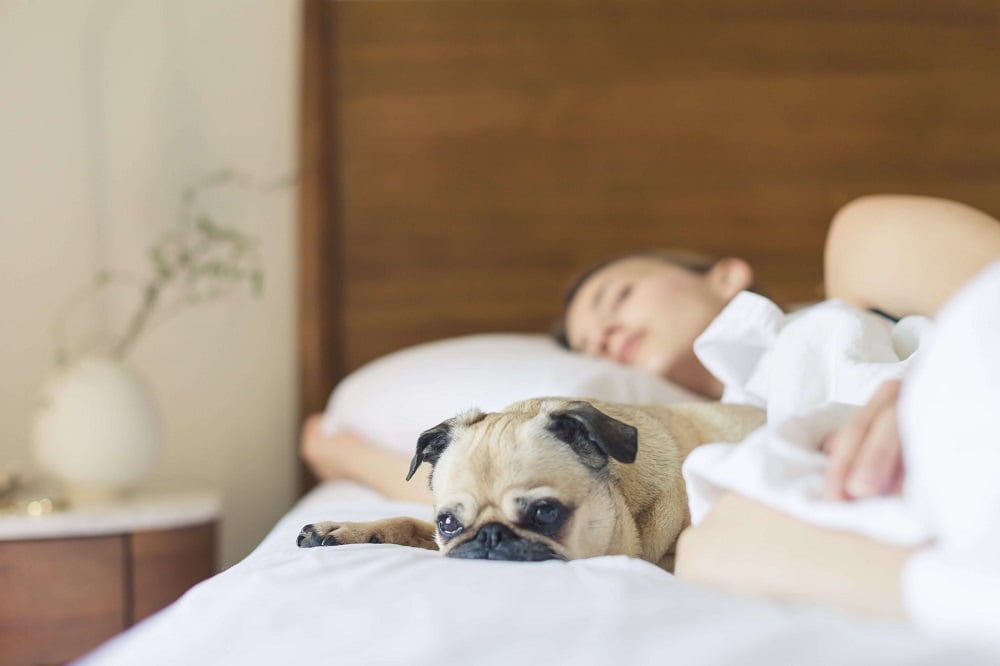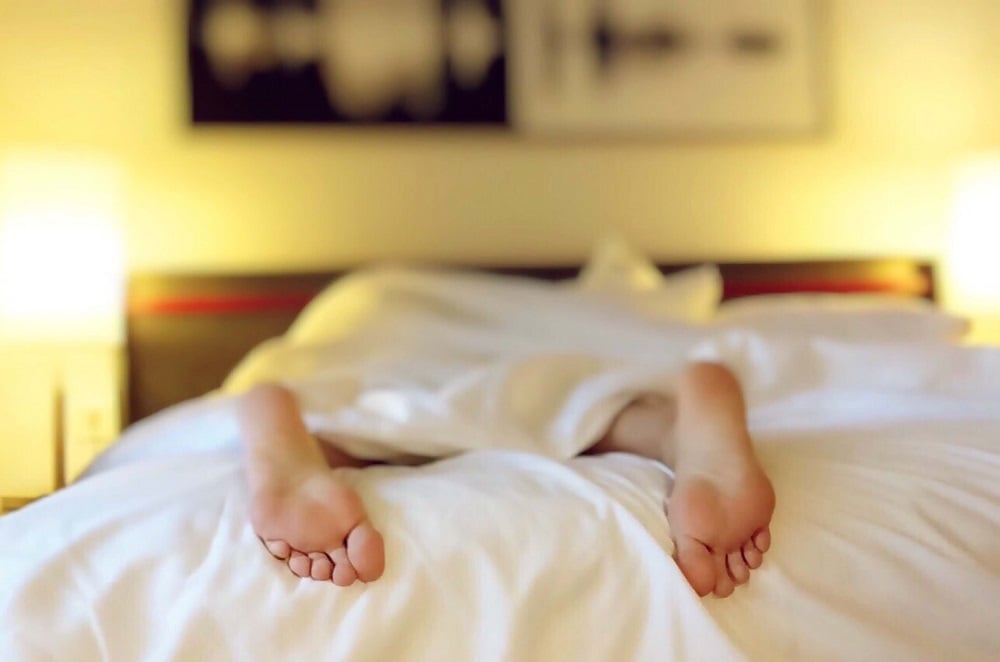Overwhelmed or just sleep deprived? Our healthy hacks will help!
Chronic lack of sleep is more common today than ever before, with much of it attributed to overexposure to blue light emissions from our smartphones and tablets at night. You know… falling down the rabbit hole of Instagram Stories… yep, that.
Even just a couple of nights of poor sleep can have significant impact on the human body and how we get through the day.
But long term lack of proper REM sleep has been linked to a huge list of serious health issues. This includes clinical depression, clumsiness, compromised immune system, hormone disruption, stomach problems, increased likelihood of cold and flu, low concentration and inability to think clearly, obesity, adrenal glands depletion resulting in chronic fatigue, aching muscles, increased blood pressure, hallucinations, increased risk of diabetes, and even mania.
At its very least, just one poor night’s sleep can mean your ability to cope is drastically reduced, and the feeling of being completely overwhelmed comes a-knocking!
There can be serious causes of sleep deprivation, such as sleep apnea, where people stop breathing repeatedly during sleep, sometimes as many as hundreds of times. So if you think that’s a concern, it’s very important to get tested at a sleep clinic.
But if you think your busy lifestyle is the cause of your odd restless night, then these 4 sleep hacks will be sure to get you sleeping like a baby!

Our 5 healthy hacks to a happy sleep
1. Keep to a (strict) bed time
Sure, it’s not possible all the time, but setting yourself a strict go-to-bed and get-up time will dramatically change the way you sleep. Most people require seven or eight hours sleep. Doctors advise no more than this as oversleeping can also negatively impact health (except in the case of depression, where lots of sleep may be required).
Going to bed somewhere between 9pm and 10pm is considered by the medical profession as an achievable benchmark. If you head to the gym or boot camp at 5am, then 9pm will work better for you. If you start your day later, then 10pm might be your optimal bedtime.
Sleeping after these times can dramatically impact your body’s natural circadian rhythm and have real health consequences. Going to bed after 11pm can mean you miss out on the non-REM restorative sleep our bodies need. And going to bed after midnight can lead to insomnia and also mean when you do finally get to sleep, you struggle to stay asleep!
2. Magnesium
Anecdotally people swear by magnesium in helping them get great sleep. This naturally derived mineral is enormously beneficial to the body, particularly to bone health and muscle, heart and brain function. Magnesium also activates the parasympathetic nervous system to calm and relax you. It also regulates melatonin, the hormone our bodies naturally produce, which helps the body’s sleep and awake cycles.
You can easily increase your intake of magnesium just by the foods you eat. Eat plenty of leafy greens, such as spinach and kale, green vegetables like broccoli, green beans, asparagus and peas, fruits, including figs, bananas, raspberries and avocados, most nuts and seeds, and legumes such as chickpeas, black beans and kidney beans.

3. No devices after 8pm
Yes… actually. We’re talking any screen at all that emits blue light. The problem with sleep, is it is part of our natural biorhythms (biological clocks) and circadian rhythms, which mean we need to sleep within every 24-hour cycle. Numerous studies have found that when we sync up with our natural environment and what’s happening right outside our windows with daylight and night time, then we optimise sleep. The more out of phase we are with nature’s cycles, the more prone we are to insomnia.
Before the advent of electricity and lights, people tended to get up with the sun and went to bed when the sun went down, more or less. But now, when we’re watching Netflix and checking Instagram late at night, we’re sending very confusing signals to our brain. We’re effectively saying “Hey brain, it’s day time, I need to be alert!”.
So don’t bring any device into your bedroom, and don’t use any device for an hour before you go to bed, and ideally switch off TV too (it’s not as painful as it sounds!). And if you use your phone as an alarm clock the simplest solution is to buy an analogue alarm clock (ideally one without a snooze button because that can cause a whole other bag of issues!).
4. Tart Cherry Juice
This low calorie juice can be added to water an hour before bed and as well as helping to calm and relax, it has loads of other health benefits. Tart cherry is high in antioxidants, antiviral and anti-inflammatory so is ideal to support the immune system. One 2010 study found that tart cherry also has a similar impact in the treatment of insomnia as valerian or melatonin. It’s packed full of essential nutrients such as potassium and iron too, so great for your overall health. Try tart cherry in liquid form with water or in capsule form.
5. Go homeopathic
There are now a bunch of remedies on the market to aid in getting a good night’s sleep. They contain natural extracts that are known to naturally support sleep plus they are designed to be non-drowsy and lower stress levels. Alternatively try essentials oils, such as lavender in a diffuser or pop a few drops directly onto your pillow and disappear into dreamtime.
You deserve a good sleep every night of the week and it’s entirely possible to achieve it. If you suffer from poor sleep, try our hacks above and we’re confident you’ll improve sleep and feel a tonne better!






